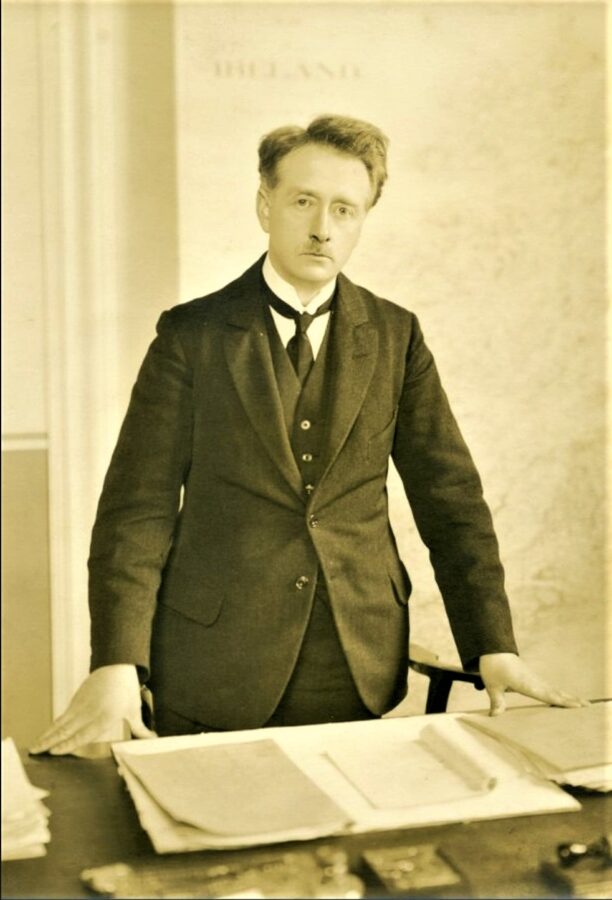
Kieran’s Our City, Our Town Article,
Cork Independent, 5 January 2023
Recasting Cork: A New Year for Hope and Unity
In his New Year’s message in just over 200 words published in regional newspapers such as the Cork Examiner on 2 January 1923 President of the new Irish Free State or Saorstát Éireann W T Cosgrave gave his core messages to the Irish people. He dwelt on themes of unity and hope with further references to sacrifices made and to make to ensure Saorstát Éireann would work. The President also dwelt on the democratic principle that the Oireachtas established under the Treaty and Constitution must be the sole sovereign authority in the country;
“Today we celebrate the first New Year’s Day in Saorstát Éireann. In our new-found liberty we can restore unhindered the language and culture of the Gael; develop our country and its trade: improve in every way the lives of our citizens; and, as a co-equal member in a Commonwealth of Free Nations, stand erect and recognised amongst the Nations of the earth.
The road of liberty has been marked by painful incidents, a small section of our people having engaged in destructive war upon the Nation. Our people desire Peace, and they intend to achieve it in the only way possible by establishing the right of the majority to rule within the Nation.
“Having attained our rightful place amongst the Nations we found democracy challenged, and in making secure the rights won, and in vindicating representative institutions, we have lost two great leaders. Many gallant soldiers and patriotic citizens of the Motherland, whose unselfish labours and suffering helped to found and consolidate Saorstát Éireann have given up their lives also in its defence.
The New Year opens, however, with a message of hope – hope for peace, order, and goodwill and hope for unity with our countrymen temporarily divorced from us.
To every citizen of the Saorstát and to every soldier of our chivalrous Army, I wish God’s blessing, and send cordial greetings for a Happy New Year”.
The press release message is surrounded on the Cork Examiner page of stories from different parts of Munster of ambushes, sniping, National Army troops capturing many more Republican anti treatyites in counties such as Kerry, the question of the treatment of prisoners and possible death sentences, Republicans who died in battle, and the burning of houses of senators of the new Seanad Éireann.
A special correspondent in Dublin of the Press Association detailed the response by President Cosgrave to a resolution of ex-officers of the Mid-Tipperary Brigade of the IRA, calling on the Government to meet the Republican leaders in conference with a view to ending the warfare. The President made it perfectly clear that the basis for peace must be that the Treaty would stand without retraction, explicit or implied, of any part of it;
“The Oireachtas established under the Treaty and Constitution shall be the sole sovereign authority, that there shall be no armed force or military organisation, and no carrying or keeping of arms or material of war except such as the same authorises that there shall be no claim on the part of any person coming; under a proposed peace to exercise power of Government, or to act so as to threaten or endanger life, liberty, property, or livelihood, and that there shall be no interference with the elections…Without these fundamental conditions any so-called peace can only be a false peace, endangering the whole future of Ireland and removing the hope of national unity”.
However, whilst the effects of the Civil War lingered across the Irish countryside there was a reprieve for citizens in cities such as Cork. The streets of Cork were now in the full control of the National Army. The stories of the sniping from the anti-treaty Republican side that existed across the winter of 1922 had ceded.
Most noticeably around New Year’s Day 1923, many concerts in community settings such as its hospitals, local schools and the Fr Mathew Hall, and city performance venues are listed in the Cork Examiner. For example, a concert was held at the Mercy Hospital on New Year’s Eve for the entertainment of wounded soldiers of the National Army, not alone in the institution, but also those undergoing treatment at the other hospitals in the city. Many well-known local artistes were amongst the dozen or so contributors, including a Mrs J H Horgan. At the conclusion of the entertainment, Mr T J O’Sullivan, Chairman of the Hospital Entertainment Society for the Wounded returned thanks to those who assisted in organising the concert. On behalf of the wounded soldiers, Commandant General Denis Galvin, who with some other officers of the National Army were present, also thanked the organisers and contributors.
After a closure for a considerable time in 1922, the Palace Theatre re-opened on New Year’s Day 1923. To avail of the programme, there were performances at 6.30pm and 8.30pm. Both shows were crowded with patrons with the programme of being rooted in Vaudeville entertainment, underscored by a small orchestra under the baton of conductor Rupert Winston. Films were screened at the Coliseum, Assembly Rooms, Washington Cinema and at the Pavilion. New Year’s Day 1923 for many Corkonians brought a normality that had not been present for several years.
Happy New Year to all readers of the column.
Missed one of the 50 columns in 2022, log onto www.corkheritage.ie
Caption:
1183a. W T Cosgrave, c.1923 (source: Royal Irish Academy, Dublin).